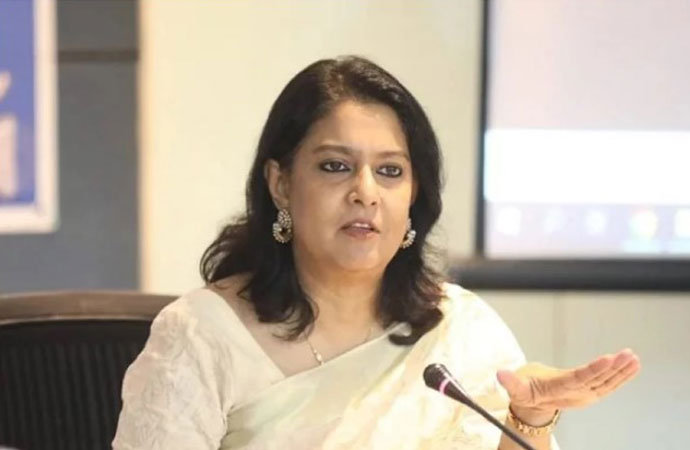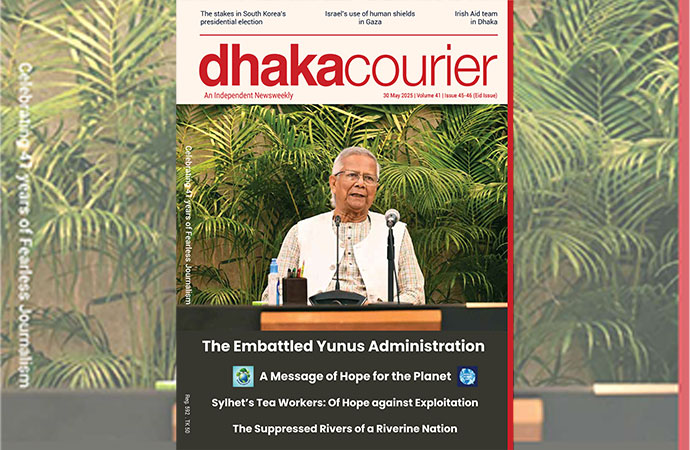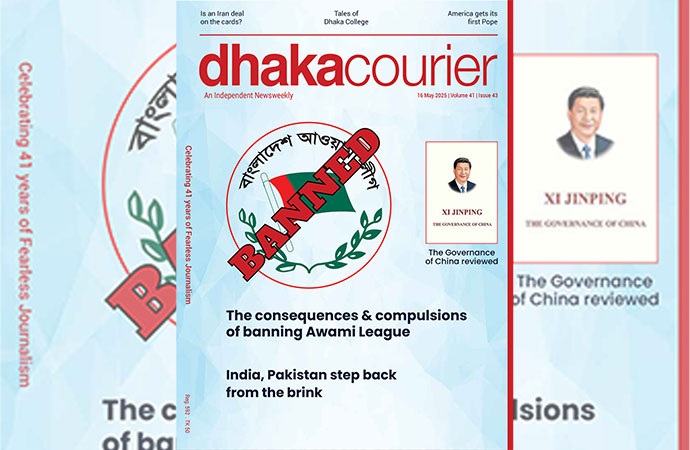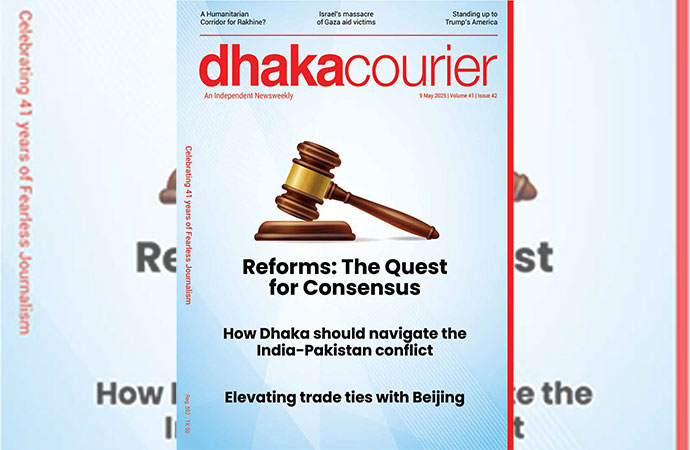Featured 2

Photo: Collected
The ordinary Bangladeshis except the "who is who" are getting less in their pockets, while being forced to pay more for their livelihood. Each time the government hikes prices of utilities or the dishonest trading syndicates manipulate with the prices of the essentials, it is the commoners who bear the brunt. The tales of miseries are not only of the hand-to-mouth wage earners. The constant and consistent rise in the prices - pushing up the cost of living - has long been a common phenomenon in Bangladesh. Each time the hikes strike the hapless people making them more helpless the government ministers have a well-versed set response: the syndicates are the culprits. They will surely be hunted down.
Behind the scene and beyond the reach of the law, even if it is applied, those supposed culprits just flash a smile. "Oh, the same old dreary warning coming from toothless authorities!" is their reaction. The prices are rising under the nose of the authorities with the syndicated traders or better say manipulators and hoarders are having the last laugh. The history beginning from the days of Pakistan to this day of Bangladesh at 50 has been same for the commoners, the day labours, the marginal farmers, traders, domestic aids and street hawkers, rickshaw pullers and even the mid-income people above them. Whenever the prices jump abnormally it is the syndicate and not the failure of the authorities and their policies to be blamed. Add to this in today's context the claim that the Covid-19 pandemic and the Russia-Ukraine war are behind the soaring prices of essentials ranging from fish to meat to edible oil to flour to onion and lentil. With Ramadan, the holy month of fasting for Muslims, knocking at the door the commodity prices are spiking almost day by day. The more the prices increase the longer the lines become with low-to-middle-income city dwellers scrambling for fair-price commodities offered by state-run Trading Corporation of Bangladesh (TCB) aboard trucks across Dhaka city. Trucks loaded with onions, lentils, green peas, dates, sugar and edible oil are intervening in the market price in Dhaka and elsewhere in the country. It has been going on for quite a few months. How effective has it been in taming the market, which is on fire, is a question in the minds of many. It has been already reported that the trucks become empty before the last in the lines reach them. Media reports quoted some of these disappointed people who said they failed to get anything from the trucks even after a wait for five hours. They had been the double losers: going home empty-handed plus losing the day's wages. Also, there have been complaints that some people repeat their presence in the queues to get extra products and then sell those to the open market at higher prices. It happens as there is no system of identifying the receivers.
In a country where supplies are in normal supply and common people's demand remaining normal why would the prices of the essentials witness such galloping increase? The media reports in the past week told us that edible oil vanished from some wholesale shelves amid a little bit of lowered price. Market analysts have been quoted as saying that this is nothing but the work of the profiteers who love to thrive by creating an artificial crisis. The foul play has been intensified with the approach of the holy month of Ramadan which culminates into one of the two biggest Islamic festivals. Like their fellow-faiths worldwide Muslims in Bangladesh too are preparing for the practice of Siam for a month to be followed by the Eid festival. Bangladesh, however, stands apart from others in regard to the run-away behavior of prices ahead of such festivals. While Muslims in other countries are allowed to enjoy price discounts on the products they buy, their counterparts in Bangladesh become victims of fleecing by greedy traders with the authorities doing nothing except verbal vows to crack down on them. Occasionally though mobile courts penalize some of the unscrupulous traders here and there without having any long-term impact. It's the corrupt system that needs to be overhauled. The system draws strength and sustenance from the corrupt power too. Unless and until this system is hit hard and changed in favour of the people, nothing is going to help. Frankly speaking if the power is designed to make sure only the rich will benefit at the expenses of the poor no angel can help us. The system is rock solid in its greedy and nasty quest of plundering the nation's wealth and making the common people to pay for it. It has to change drastically indeed. Words and empty threats won't work. Actions would. But meaningful actions come only when the unhealthy system is replaced by a people-friendly set-up.

























Leave a Comment
Recent Posts
Main Eid-ul-Azha congregation ...
Muslims across Bangladesh celebrated Eid-ul-Azha, one of the most sign ...
Spice Girls
Spice Girls was a British pop band. Spice Girls included: Victoria Bec ...
South Korea Is Facing a Triple Challenge
Kazi Shahidullah bahi and the DU: From a memorial me ..
France-Bangladesh cooperation in focus at ‘Strategic ..
Indian president hopes for ‘democratic, inclusive’ B ..